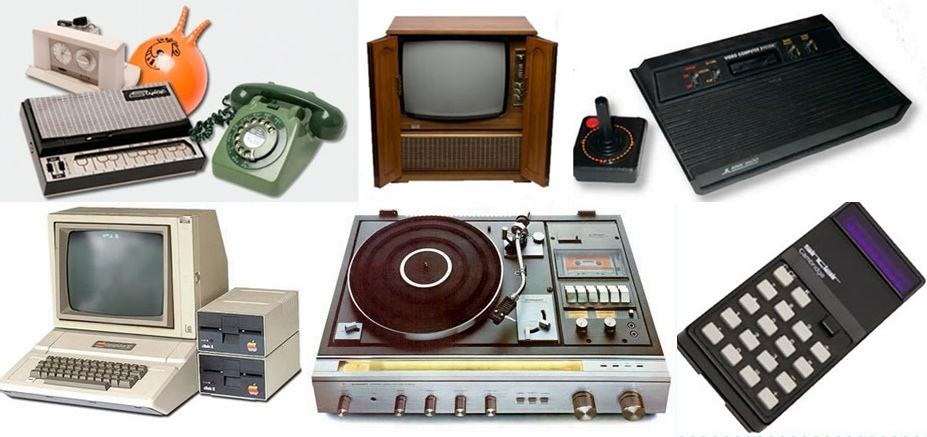Science and Technology. Тексты по теме для подготовки к экзамену
Sceince and technology is what we cannot imagine our life nowadays. Throughout the history inventors’ ideas have changed the way we live, making it easier and more enjoyable. The twenty-first century is no exception as it is noted for the invention of the television, computers, spacecraft, genetic engineering and many others. Read the texts about famous inventors and their inventions and remember their names. Before reading you should make sure that you know the words — Science. Английские слова. Список №1

Science and Technology. Texts about Famous Inventions and their Inventors
Before reading the texts match the inventors and inventions:
The inventions: the telephone, the television, the computer, the light bulb, the hydrogen bomb, the mobile phone (6)
The inventors: Charles Babbage, John Braid, Alexander Graham Bell, Thomas Edison, Martin Cooper, Andrei Sakharov (6)
Содержание:
1. The Invention of the Telephone
The telephone is one of the most important inventions of the 19th century. Its creator was the English scientist Alexander Graham Bell.
Bell wanted to be a teacher and entered Edinburgh University. But he changed his mind and became a student of the Medical Faculty of London University. Under the guidance of an outstanding German scientist who works on physiology of sight and ear, Bell began to study the human organs of articulation.
By and by Bell came to the idea of creating a special apparatus which would help the deaf to pronounce the sounds of speech and learn to speak. Working on such a apparatus, Bell invented microphone (with engineer Thomas Watson) and telephone. At first his invention was not popular with the public, but Bell visited American towns and other countries, read lectures and demonstrated his telephone.
In 1878 he also organized his own company to produce telephones. But Bell wasn’t interested in business itself and used his money on the laboratories for generating new ideas. He was and is greatly respected both in England and America.
2. The Invention of the Television
The television is a mass media that serves to gives people opportunities both for entertainment and for rapid information.
The idea of a machine able to broadcast both sound and vision goes back to 1875. But it wasn’t until 1926 that a Scottish engineer (John Braid) turned the idea into a practical reality. The first pictures were black and white and were not very clear.
Early TV sets cost as much as a small car and few people bought them. In 1936 the original system was improved and the first regular TV programme was broadcast in Britain.
But the real TV revolution began in America after World War Two. Commercial stations began to open in almost every city. But still lots of people didn’t have TV sets as they were too expensive. That all changed in the 60s and 70s when more and more TV sets were sold and the importance of television grew quickly. In 1980 there appeared satellite television. Dozens of new channels are now available to anyone who buys a receiving “dish”.
3. The Invention of the Computer
One more important invention of our century is the computer. The first computer was invented by the English scientist Charles Babbage.
Nowadays nearly everything we do in the modern world is helped and controlled by computers. Computers are used so often because they are more efficient than human beings. They have better memories and can store a lot of information.
In fact, computers can do what we can do but faster and better. They can control different machines, foretell tomorrow’s weather, even play chess and compose music. Computers are widely used in various professions. We can find computers everywhere: in a library, in a travel agency, in a hotel, in a shop and in many other places.
To be sure, the technical progress will not stop but the machines will not be able to substitute everything including the human being.
4.The Invention of the Mobile (cellular) Phone
Modern mobile phone provides a lot of services, from being able to message anyone to immediate access to the internet. This convenience is one of the reasons why we use mobile phone every day and sometimes cannot imagine our life without it. However, we do not know that the name of the inventor of the first cellular phone, the talented American engineer Martin Cooper.
Martin Cooper, was born in Chicago on the 26th of December, 1928. He graduated from Illinois Institute of Technology in the early ’50s and worked in the electronic industry. Throughout his career he was awarded multiple patents for his work.
Among different inventions in mobile technology, the invention of a cell phone was the most significant one. Doctor Martin Cooper made it, while he was working for Motorola (1973). At that time the demand for such devices was very high and he was among many other people who were trying to create a similar type of mobile device.
The first cellular phone was named DynaTac 8000X by Motorola. It looked nothing like what we’re used to now — it was 10 inches long and weighed more than 2 pounds.
Omitting the process of the mobile phone evolution, let us say a few words about iPhones. These advanced devices have touchscreen technology, a good quality camera, and 3G network capabilities. They were launched into the market in 2007.
Since 1973, mobile phone technology and networks have come a long way and though Martin Cooper was the man that initially invented the cell phone, there are a lot of other inventors that played a crucial role in the cell phone’s creation.
The most famous of them are:
Alexander Graham Bell, the man that invented the first telephone.
Joel Engel, the main rival of Martin Cooper, who worked in the company called Bell Labs. Bell Labs and Motorola companies were in serious competition to manufacture mobile devices. Motorola won the tech war and the first mobile phone was named as DynaTac 8000X by Motorola.
5. The most famous scientists and their inventions (discoveries) in Britain and America
Isaak Newton (an English scientist) who lived in the 17th century is the founder of modern mathematics, physics and spectography. Newton discovered the law of motion and the universal law of gravitation.
The eighteenth century is noted for the Industrial Revolution in Britain and many inventions, most prominent of them is probably considered to be the invention of steam engine.
The nineteenth century is noted for the invention of electricity and the telephone.
6. Russia’s Achievements in Science and Technology
The most prominent Russian scientists (engineers) and their inventions are:
1. Mikhail Lomonosov who invented the telescope which helped him to study Venus and made a lot of achievements in astronomy and mineralogy;
2. Dmitry Mendeleev who created the periodic table of elements;
3. Ivan Pavlov who studied conditioned reflexes (условные рефлексы) in animals;
4. Konstantin Tsiolkovsky who created the theory of space flight;
5. Sergei Korolyov who designed the intercontinental missile, Sputnik satellite, and Vostok spacecraft;
6. Igor Kurchatov who made a lot of inventions in nuclear physics;
7. Andrei Sakharov who invented the hydrogen bomb (водородная бомба)
Великие изобретения человечества
Television (1920s)
The invention that swept the world and changed leisure habits for countless millions was pioneered by Scottish-born electrical engineer John Logie Baird. It had been realised for some time that light could be converted into electrical impulses, making it possible to transmit such impulses over a distance and then reconvert them into light.
Motor Car (Late 19th Century)
With television, the car is probably the most widely used and most useful of all leisure-inspired inventions. German engineer Karl Benz produced the first petroldriven car in 1885 and the British motor industry started in 1896. Henry Ford was the first to use assembly line production for his Model Т car in 1908. Like them or hate them, cars have given people great freedom of travel.
Electricity
The name came from the Greek word for amber and was coined by Elizabeth I’s physician William Gilbert who was among those who noticed that amber had the power to attract light objects after being rubbed. In the 19th century such great names as Michael Faraday, Humphry Davy, Alessandro Volta and Andre Marie Ampere all did vital work on electricity.
Photography (Early 19th Century)
Leonardo da Vinci had described the camera obscura photographic principle as early as 1515. But it was not until 1835 that Frenchman Louis Daguerre produced camera photography. The system was gradually refined over the years, to the joy of happy snappers and the despair of those who had to wade through friends’ endless holiday pictures.
Telephone (1876)
Edinburgh-born scientist Alexander Graham Bell patented his invention of the telephone in 1876. The following year, the great American inventor Thomas Edison produced the first working telephone. With telephones soon becoming rapidly available, the days of letter-writing became numbered.
Computer (20th Century)
The computer has been another life-transforming invention. British mathematician Charles Babbage designed a form of computer in the mid-1830s, but it was not until more than a century later that theory was put into practice. Now, a whole generation has grown up with calculators, windows, icons, computer games and word processors, and the Internet and e-mail have transformed communication and information.
Aeroplane
The plane was the invention that helped shrink the world and brought distant lands within easy reach of ordinary people. The invention of the petrol engine made flight feasible and the American Wright brothers made the first flight in 1903.
Перевод
Телевидение (1920)
Изобретение, которое охватило мир и изменило привычки проведения досуга для миллионов людей, было впервые показано инженером-электриком шотландского происхождения Джоном Логи Бэрдом. Было выяснено втечении некоторого времени, что свет может быть преобразован в электрические импульсы, что позволяет передавать такие импульсы на расстояние, а затем вновь обращать их в свет.
Автомобиль (конец 19-го века)
Наряду с телевидением, автомобиль, вероятно, является наиболее широко используемым и самым полезным из всех изобретений. Немецкий инженер Карл Бенц создал первый автомобиль с бензиновым двигателем в 1885 году и британской автомобильная промышленность началась в 1896 году. Генри Форд был первым, кто использовал конвеерное производство своей Модели Т автомобиля в 1908 году. Любим мы их или ненавидим, автомобили дали людям большую свободу передвижения.
Электричество
Название произошло от греческого слова » янтарь» и было придумано врачом Елизаветы I Уильямом Гильбертом, в который был в числе тех, кто заметил, что янтарь может притягивать легкие предметы, после того, как его потереть. В 19 веке такие великие имена, как Майкл Фарадей, Гемфри Дэви, Алессандро Вольта и Андре Мари Ампер сделали все жизненно важные работы по электричеству.
Фотография (начало 19 века)
Леонардо да Винчи описал фотографические принципы камеры-обскуры в начале 1515. Но только в 1835 француз Луи Дагер создал камеру для фотографий. Системы постепенно совершенствовались в течение многих лет, на радость счастливых любителей фотогрфировать и отчаяние тех, кто вынужден преодолевать просмотры бесконечных фотографий праздников друзей.
Телефон (1876)
Рожденный в Эдинбурге, ученый Александр Грэхем Белл запатентовал свое изобретение телефона в 1876 году. На следующий год великий американский изобретатель Томас Эдисон произвел первый рабочий телефон. С доступностью телефонов, написание писем стало исчезать.
Компьютер (двадцатый век)
Компьютер стал еще одним изобретением, преобразующим жизнь. Английский математик Чарльз Бэббидж разработал форму компьютера в середине 1830-х годов, но только более чем столетие спустя, теория была введена в практику. Теперь, целое поколение выросло с калькуляторами, окнами, значками, компьютерными играми и текстовыми процессорами, а также Интернет и электронная почта изменили общение и информацию.
Самолет
Самолет изобретение, которое помогло уменьшить мир и сделать далекие земли в пределах легкой досягаемости для обычных людей. Изобретение бензинового двигателя сделало возможным полет, и американские братья Райт совершили первый полет в 1903 году.
Тема «Изобретения в нашей жизни» (Inventions in our life)
From space shuttles to eye-glasses, from air-conditioning to the Internet – inventions of the last centuries have completely transformed our lives and our world. The era of fascinating discoveries has changed the way we communicate, the way we spend our free time. The machine gun has made our world more dangerous, the parking meter – more expensive and refrigerators have changed our eating habits. We can’t imagine our life without electricity and domestic electric appliances today such as microwave ovens, toasters, washing-machines, dish-washers, vacuum cleaners, irons and many others. Our world is also impossible without modern means of transport: cars, trains, ships or airplanes.
I am really amazed by the greatest medical inventions of penicillin, anaesthetic, contact lenses, X-rays and many others. Penicillin is the name of an antibiotic that is used to kill dangerous bacteria in our bodies. This medicine was discovered in 1928 by Alexander Fleming. Many people worldwide stopped dying when their wounds had got infected. Of course, it is impossible to count how many lives have been saved by penicillin, but some estimate that it is about 200 million. As for X-rays, they were discovered by Wilhelm Rontgen in 1895 by accident. X-ray machines produced images of different parts in the human body. And since then they have been widely used for analyzing problems with bones, teeth and organs. Today they are also used at airports for luggage inspection.
I must say that some inventions are quite strange and funny. Among them are food fans (for making your hot food cool enough to eat), heated toilet seats or devices that translate dog barking. As for weapons, cigarettes and fast food, I believe they are the worst mankind inventions. Modern inventions should make our life easier and better, but they must not cause health problems or destroy our planet.
Перевод
От космических кораблей до очков для глаз, от кондиционирования воздуха до интернета – изобретения последних столетий полностью изменили наши жизни и наш мир. Эра удивительных открытий изменила то, как мы общаемся, как мы проводим свободное время. Автоматы сделали наш мир более опасным, счетчики за парковку – более дорогим, а холодильники изменили наши привычки в питании. Мы не можем представить свою жизнь сегодня без электричества и бытовых электроприборов, таких как микроволновые печи, тостеры, стиральные машины, посудомоечные машины, пылесосы, утюги и многие другие. Наш мир невозможен и без современных видов транспорта: автомобилей, поездов, кораблей или самолетов.
Меня просто поражают величайшие медицинские открытия пенициллина, анестезии, контактных линз, рентгеновских лучей и многого другого. Пенициллин – это название антибиотика, который используется для уничтожения опасных бактерий в нашем организме. Это лекарство было открыто в 1928 г Александром Флемингом. Многие люди по всему миру перестали умирать после того, как их раны были заражены. Разумеется, невозможно подсчитать количество жизней, спасенных при помощи пенициллина, но по некоторым оценкам, это около 200 млн. Что касается рентген-лучей, их открыл случайно Вильгельм Рентген в 1895 г. Рентгеновские аппараты производят изображения различных частей человеческого тела. И с тех пор они широко используются для анализа проблем с костями, зубами и органами. Сегодня они также применяются в аэропортах для осмотра багажа.
Great Inventions
Топик Великие изобретения рассказывает о самых важных изобретениях, кардинально повлиявших на уровень жизни человека. Великие ученые и изобретатели подарили нам столь привычные сейчас вещи: телевидение, автомобиль, электричество, фотографию, телефон, компьютер и самолет. И это только «главные вехи», оказавшие влияние на все стороны нашей жизни. Благодаря упомянутым в топике ученым (а их имена нужно запомнить), мы можем наслаждаться всеми благами цивилизации.
The invention that swept the world and changed leisure habits for countless millions was pioneered by Scottish-born electrical engineer John Logie Baird. It had been realised for some time that light could be converted into electrical impulses, making it possible to transmit such impulses over a distance and then reconvert them into light.
Motor Car (late 19th Century)
With television, the car is probably the most widely used and most useful of all leisure-inspired inventions. German engineer Karl Benz produced the first petrol driven car in 1885 and the British motor industry started in 1896. Henry Ford was the first to use assembly line production for his Model Т car in 1908. Like them or hate them, cars have given people great freedom of travel.
The name came from the Greek word for amber and was coined by Elizabeth I’s physician William Gilbert who was among those who noticed that amber had the power to attract light objects after being rubbed. In the 19th century such great names as Michael Faraday, Humphry Davy, Alessandro Volta and Andre Marie Ampere all did vital work on electricity.
Photography (early 19th Century)
Leonardo da Vinci had described the camera obscura photographic principle as early as 1515. But it was not until 1835 that Frenchman Louis Daguerre produced camera photography. The system was gradually refined over the years, to the joy of happy snappers and the despair of those who had to wade through friends’ endless holiday pictures.
Edinburgh-born scientist Alexander Graham Bell patented his invention of the telephone in 1876. The following year, the great American inventor Thomas Edison produced the first working telephone. With telephones soon becoming rapidly available, the days of letter-writing became numbered.
Computer (20th Century)
The computer has been another life-transforming invention. British mathematician Charles Babbage designed a form of computer in the mid-1830s, but it was not until more than a century later that theory was put into practice. Now, a whole generation has grown up with calculators, windows, icons, computer games and word processors, and the Internet and e-mail have transformed communication and information.
The plane was the invention that helped shrink the world and brought distant lands within easy reach of ordinary people. The invention of the petrol engine made flight feasible and the American Wright brothers made the first flight in 1903.
Great Inventions – Великие изобретения
🔊 Play Television (1920s) Телевидение (1920)
🔊 Play The invention that swept the world and changed leisure habits for countless millions was pioneered by Scottish-born electrical engineer John Logie Baird. Изобретение, которое охватило мир и изменило привычки проведения досуга для миллионов людей, было впервые показано инженером-электриком шотландского происхождения Джоном Логи Бэрдом.
🔊 Play It had been realised for some time that light could be converted into electrical impulses, making it possible to transmit such impulses over a distance and then reconvert them into light. Было выяснено втечении некоторого времени, что свет может быть преобразован в электрические импульсы, что позволяет передавать такие импульсы на расстояние, а затем вновь обращать их в свет.
🔊 Play Motor Car (Late 19th Century) Автомобиль (конец 19-го века)
🔊 Play With television, the car is probably the most widely used and most useful of all leisure-inspired inventions. Наряду с телевидением, автомобиль, вероятно, является наиболее широко используемым и самым полезным из всех изобретений.
🔊 Play German engineer Karl Benz produced the first petroldriven car in 1885 and the British motor industry started in 1896. Немецкий инженер Карл Бенц создал первый автомобиль с бензиновым двигателем в 1885 году, а британская автомобильная промышленность началась в 1896 году.
🔊 Play Henry Ford was the first to use assembly line production for his Model Т car in 1908. Генри Форд был первым, кто использовал конвеерное производство своей Модели Т автомобиля в 1908 году.
🔊 Play Like them or hate them, cars have given people great freedom of travel. Любим мы их или ненавидим, автомобили дали людям большую свободу передвижения.
🔊 Play Electricity Электричество
🔊 Play The name came from the Greek word for amber and was coined by Elizabeth I’s physician William Gilbert who was among those who noticed that amber had the power to attract light objects after being rubbed. Название произошло от греческого слова ” янтарь” и было придумано врачом Елизаветы I Уильямом Гильбертом, в который был в числе тех, кто заметил, что янтарь может притягивать легкие предметы, после того, как его потереть.
🔊 Play In the 19th century such great names as Michael Faraday, Humphry Davy, Alessandro Volta and Andre Marie Ampere all did vital work on electricity. В 19 веке такие великие имена, как Майкл Фарадей, Гемфри Дэви, Алессандро Вольта и Андре Мари Ампер сделали все жизненно важные открытия по электричеству.
🔊 Play Photography (Early 19th Century) Фотография (начало 19 века)
🔊 Play Leonardo da Vinci had described the camera obscura photographic principle as early as 1515. Леонардо да Винчи описал фотографические принципы камеры-обскуры в начале 1515.
🔊 Play But it was not until 1835 that Frenchman Louis Daguerre produced camera photography. Но только в 1835 француз Луи Дагер создал камеру для фотографий.
🔊 Play The system was gradually refined over the years, to the joy of happy snappers and the despair of those who had to wade through friends’ endless holiday pictures. Системы постепенно совершенствовались в течение многих лет, на радость счастливых любителей фотогрфировать и отчаяние тех, кто вынужден преодолевать просмотры бесконечных фотографий праздников друзей.
🔊 Play Telephone (1876) Телефон (1876)
🔊 Play Edinburgh-born scientist Alexander Graham Bell patented his invention of the telephone in 1876. Рожденный в Эдинбурге, Александр Грэхем Белл запатентовал свое изобретение телефона в 1876 году.
🔊 Play The following year, the great American inventor Thomas Edison produced the first working telephone. На следующий год великий американский изобретатель Томас Эдисон произвел первый рабочий телефон.
🔊 Play With telephones soon becoming rapidly available, the days of letter-writing became numbered. С доступностью телефонов, письма стали исчезать.
🔊 Play Computer (20th Century) Компьютер (двадцатый век)
🔊 Play The computer has been another life-transforming invention. Компьютер стал еще одним изобретением преобразующим жизнь.
🔊 Play British mathematician Charles Babbage designed a form of computer in the mid-1830s, but it was not until more than a century later that theory was put into practice. Английский математик Чарльз Бэббидж разработал форму компьютера в середине 1830-х годов, но только более чем столетие спустя, теория была введена в практику.
🔊 Play Now, a whole generation has grown up with calculators, windows, icons, computer games and word processors, and the Internet and e-mail have transformed communication and information. Теперь, целое поколение выросло с калькуляторами, окнами, значками, компьютерными играми и текстовыми процессорами, а также Интернетом и электронной почтой, которые изменили общение и информацию.
🔊 Play Aeroplane Самолет
🔊 Play The plane was the invention that helped shrink the world and brought distant lands within easy reach of ordinary people. Самолет – изобретение, которое помогло уменьшить мир и сделать далекие земли в пределах досягаемости для обычных людей.
🔊 Play The invention of the petrol engine made flight feasible and the American Wright brothers made the first flight in 1903. Изобретение бензинового двигателя сделало возможными полеты, и американские братья Райт совершили первый полет в 1903 году.










